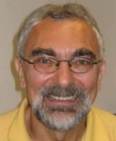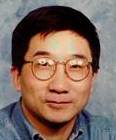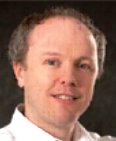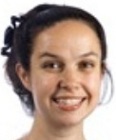IEEE ICC 2012 Tutorials Program
Friday, June 15, Afternoon
T10: Mobile-Station and Base-Station Cooperation for Wireless Communications Friday, June 15, Afternoon
- Speakers:
- Lajos Hanzo, University of Southampton, UK
- Abstract:
- The limitations of MIMOs relying on co-located array-elements are highlighted and it is shown, how the single-antenna-aided cooperative mobiles may circumvent these limitations by forming MIMOs having distributed elements. This concept is also referred to a Virtual Antenna Arrays (VAA). Then the corresponding amplify-forward and decode-forward protocols as well as their hybrids are studied. Channel coding has to be specifically designed for the VAAs in order to prevent avalanche-like error-propagation. Hence sophisticated three-stage-concatenated iterative channel coding schemes are proposed and it is argued that in the absence of accurate channel information at the relays the best way forward might be to use multiple-symbol differential detection. Indeed, it is rather unrealistic to expect that an altrustically relaying handset would also accurately estimate the source-relay channel for the sake of high-integrity coherent detection. EXIT-chart-aided designs are used for creating near-capacity solutions and a range of future research directions as well as open problems are stated.
- Speaker Bios:

Lajos Hanzo (http://www-mobile.ecs.soton.ac.uk/) FREng, FIEEE, FIET, Fellow of EURASIP, DSc has held various research and academic posts in Hungary, Germany and the UK. He has co-authored 20 Wiley-IEEE Press books and has 1250 research contributions at IEEE Xplore. He presented recent short courses for example at: ICC'2008, Beijing, China; VTC'2008 Spring Singapore; WCNC'2008, Las Vegas; VTC'2008 Fall, Calgary, Canada; Globecom'2008, New Orleans, USA; VTC'2009 Spring, Barcelona, Spain; ICC'2009 Dresden, Germany; VTC'2009 Anchorage, USA; Globecom 2009, Hawaii, USA; NCC'2010, Chennai, India; VTC'2010 Spring, Taipei, Taiwan; ICC'2010, Capte Town, South Africa; VTC'10 Fall Ottawa; ICC 2011 Kyoto, Japan; WCNC 2011 Cancun, Mexico; VTC 2011 Fall San Francisco, USA; Globecom'11 Houston, USA.
T11: Disruption/Delay Tolerant Mobile l Ad Hoc Networks Friday, June 15, Afternoon
- Speakers:
- Zhensheng Zhang, Boeing, USA
- Abstract:
- In mobile ad hoc networks, nodes are constantly in motion and/or operate on limited power. When nodes are in motion, links can be obstructed by intervening objects. To conserve power, links are shut down periodically, resulting in intermittent connectivity. Applications in intermittent connected networks must tolerate delays beyond conventional IP forwarding delays and these networks are referred to as delay/disruption tolerant networks (DTN). New protocols specifically for DTNs must be developed as existing protocols designed for the Internet do not work properly. In this tutorial, we will review different DTN architectures and different protocol stacks proposed, the Bundle Protocol (BP), the Convergence Layer (CL) protocols such as Licklider transmission protocol (LTP)-CL, TCP-CL and UDP-CL. We will also review the state of the art in routing in DTNs and categorize these routing protocols based on information used. Recent developments in erasure coding, network coding and social networks applied to DTNs are also described. New architectures for vehicular DTNs are presented. Applications of DTNs in machine to machine and off loading traffic from cellular networks are discussed. The tutorial also identifies open research issues and intends to motivate new research and development in this area.
- Speaker Bios:

Zhensheng Zhang received his Ph.D. in electrical engineering from UCLA. Dr. Zhang has over twenty years experience in design and analysis of network architecture, protocols and control algorithms in wireless networks. He is currently with Boeing (formerly SDRC), Principal Engineer, serving as Principal Investigator for several DOD projects. Before joining SDRC, he visited Microsoft Research in the summer of 2002 and worked at Sorrento Networks, Department of System Architecture, for 2 years, responsible for designing the next-generation optical metro networks using the GMPLS control framework. Prior to Sorrento Networks he was with Bell Laboratories, Lucent Technologies, focusing on research and development in wireless networks. Dr. Zhang severed as Editor of IEEE Transaction on Wireless Communications from 2002 to 2006, as the General Chair of Broadband Wireless Networking Symposium, October 2004. He also served as Guest Editor for the IEEE JSAC special issue on Overlay Networks, 2003 and the Journal of Wireless Networks issue on multimedia wireless networks, August 1996. His research interests include wireless ad hoc networks, wireless sensor networks. He has given many invited talks and tutorials on wireless ad hoc networks at various conferences. Dr. Zhang will serve as the IEEE Globecom2012 TPC Chair.
T12: Network Coding: From Theory to Practice Friday, June 15, Afternoon
- Speakers:
- Frank H. P. Fitzek, University of Aalborg, Denmark
Muriel Médard, Massachusetts Institute of Technology, USA - Abstract:
- The tutorial provides an introduction to the rapidly growing research area of network coding. Network coding allows intermediate nodes in a network to manipulate data, for example by sending out packets that are combinations of previously received packets instead of simply forwarding them. The initial theoretical results on network coding were followed by a wealth of applications in a number of different areas that show that the theoretical insights can be translated into practical gains. The tutorial is divided into three parts. The first part provides the participants with the theoretical tools necessary to understand the field of network coding and focuses on the underlying algebraic principles. It will also introduce distributed randomized network codes and discuss their properties. We will not assume any prior knowledge of advanced algebra or optimization. The second part of the tutorial gives an overview of the different application areas and discusses, which types of networking problems are amenable to network coding (and which aren't). Finally, we will discuss implementation aspects in real-world systems. Such systems may range from core network routers all the way down to mobile phones and tiny sensor nodes.
- Speaker Bios:

Frank H. P. Fitzek is a Professor in the department of Electronic Systems, University of Aalborg, Denmark heading the Mobile Device group. He received his diploma (Dipl.-Ing.) degree in electrical engineering from the University of Technology - Rheinisch-Westfälische Technische Hochschule (RWTH) - Aachen, Germany, in 1997 and his Ph.D. (Dr.-Ing.) in Electrical Engineering from the Technical University Berlin, Germany in 2002 and became Adjunct Professor at the University of Ferrara, Italy. He co-founded the start-up company acticom GmbH in Berlin in 1999. He has visited various research institutes including Massachusetts Institute of Technology (MIT), VTT, and Arizona State University. In 2005 he won the YRP award for the work on MIMO MDC and received the Young Elite Researcher Award of Denmark. He was selected to receive the NOKIA Champion Award four times in a row in 2007 to 2010. In 2008 he was awarded the Nokia Achievement Award for his work on cooperative networks. His current research interests are in the areas of wireless and mobile communication networks, mobile phone programming, cross layer as well as energy efficient protocol design and cooperative networking.

Muriel Médard is a Professor in the Electrical Engineering and Computer Science at MIT. Professor Médard received B.S. degrees in EECS and in Mathematics in 1989, a B.S. degree in Humanities in 1990, a M.S. degree in EE 1991, and a Sc D. degree in EE in 1995, all from the Massachusetts Institute of Technology (MIT), Cambridge. She serves as an associate editor for the IEEE/OSA Journal of Lightwave Technology and is a member of the Board of Governors of the IEEE Information Theory Society. Professor Médard's research interests are in the areas of network coding and reliable communications, particularly for optical and wireless networks. She was awarded the IEEE Leon K. Kirchmayer Prize Paper Award 2002 for her paper, "The Effect Upon Channel Capacity in Wireless Communications of Perfect and Imperfect Knowledge of the Channel. She was co- awarded the Best Paper Award for G. Weichenberg, V. Chan, M. Médard, "Reliable Architectures for Networks Under Stress”. She received a NSF Career Award in 2001 and was co-winner 2004 Harold E. Edgerton Faculty Achievement Award, established in 1982 to honor junior faculty members "for distinction in research, teaching and service to the MIT community." She was named a 2007 Gilbreth Lecturer by the National Academy of Engineering. Professor Médard is a House Master at Next House and a Fellow of IEEE.








